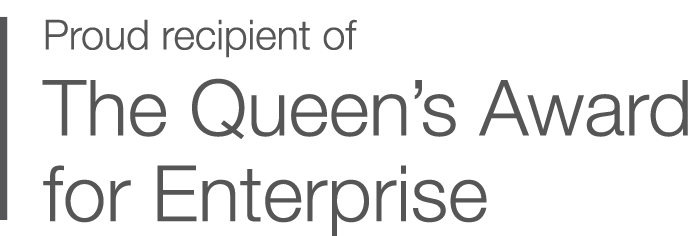Eating well during your pregnancy is often a top priority for new mums, however, once the baby arrives those healthy eating habits can fall by the wayside. Nutrition for the postpartum phase doesn’t always get the attention it deserves and yet is so important. Many mums are surprised to learn that their nutrient needs in the early stages of postnatal recovery, especially for those who are also breastfeeding - are higher than whilst pregnant.
A well-balanced diet and focusing on your nutrient intake during the postnatal stage are crucial to yourself and your baby. Easier said than done with a new little one demanding your time, care and lots of cuddles we know - so let’s take a deep dive into nutrition for post-partum and our top tips to make it easier on you.
Why is post-partum nutrition so important?
Take a minute to think about (and marvel) what your body has been through up until this point. Not only did you grow and carry a foetus with a completely new organ (the placenta) — plus all the extra fluid and tissue to accommodate your little traveller. You also went through the major full-body experience of labour and delivery. You might not be surprised that your energy is sapped and you have a general feeling of depletion.
Nourishing your body at this time is important for not only your own health but, if you’re breastfeeding, for your baby’s growth and development too. Here are just a few of the benefits of eating well post-pregnancy:
Top three aims for postpartum nutrition:
- Your body needs to replenish any nutrients that were prioritised for your baby during pregnancy.
- You also need to replenish and provide the nutrients needed to recover from the energy you used during labour and any repair and healing on top of this. Whilst this is super important for any surgical birth, tears or episiotomy, it’s also true for all who carry a baby.
- Breastfeeding places further demand on the body, both in terms of nutrient needs and energy expenditure in order to produce nutrient-rich milk.
- The need to protect your mental wellbeing - whilst there is no single factor associated with maternal mental health disorders, our nutrition can act as a vehicle to help support ourselves during a vulnerable time of transition into motherhood.
Unfortunately, nutrient deficiencies often arise more easily during this phase in a woman's life, due to all of these additional demands on the body and less time than ever to take care of ourselves! A new mum can be depleted of essential nutrients as their body works to ensure that her baby’s needs are adequately met. Motherhood is physically and mentally demanding, and nutrient deficiencies can trigger a whole host of complications that make it even harder to function optimally during this precious time. On the other hand, prioritising nutrition and self-care as well as leaning on others for help, can ensure your body is well supported.
Replenish and repair after birth
The type of birth you have can indeed determine how ‘nutrient expensive’ your recovery is, however you still need to replenish your energy and take on plenty of additional nutrients to account for healing and any blood loss regardless of what happened during labour. When looking to increase your nutritional intake, make sure you choose the best supplements to support you.
Even the most ‘straight-forward’ of births still have a significant amount of healing to do. Your body changes and adapts as your uterus shrinks back down, you have an internal wound to repair where your placenta once lived, your breasts adapt to your baby’s demands, your hormones re-adjust, your skin and connective tissues regain elasticity and that’s just the tip of the iceberg.
Where there has been more intervention during the birth e.g. C-section or those who sustain tears from a vaginal birth, there is significantly more energy and nutrition required to heal.
Which nutrients can support post-partum recovery?
- Collagen
- Vitamin C
- Iron
- Vitamin B12
- Folic acid
- Magnesium
Nutritionally speaking, healing tissues require plenty of protein, especially the amino acids glycine and proline, which helps your body to make collagen. Collagen is essentially the ‘glue’ that holds the body together, making it strong, vital and healthy therefore to support collagen production in the body, Vitamin C is necessary too.
Iron is often a focus post-birth as the birthing process can often cause a loss of blood and therefore you need to replenish your stores. You can do this by eating plenty of iron-rich foods such as meats, fish, lentils, spinach and eggs. Again, plenty of vitamin C is a must as this helps to increase the absorption of iron and assists in wound healing.
Another ‘blood building nutrient’ required for energy production and helping to form our DNA, is Vitamin B12. It is theorised that babies with inadequate B12 levels are often more irritable and have an increased risk for failure to thrive. This nutrient is found in seafood, eggs, liver, beef, salmon and fortified milks. Vegans are advised to take a B12 supplement.
Folic acid is a well-known nutrient for its importance in pregnancy, however, choline is arguably as important for brain development and memory. The needs for this nutrient are the highest in breastfeeding mums. The best food sources of choline are eggs and organ meats like liver.
Magnesium continues to support your baby’s growth and development through the duration of breastfeeding also. Most likely, your magnesium levels are depleted from pregnancy, so increasing magnesium after delivery is extremely important. It can also act as a relaxing mineral, therefore enjoying magnesium in the form of bath salts can be extra beneficial for soothing the body and mind.
Mood supportive nutrition
Healthy fats and foods high in fat-soluble nutrients such as vitamin A and E also promote healing and all important hormone balancing. There’s no doubt your hormones take a little (or a lot) of readjusting in those early weeks, so prioritising foods like avocados, sweet potatoes, carrots, sunflower seeds and almonds is a great idea.
During pregnancy, our bodies prioritise the baby’s development and therefore give away lots of brain-boosting nutrients such as Omega 3, which can often leave new mothers depleted of this essential fat. Research has shown the importance of Omega 3 in stabilising our mood, preventing postnatal depression and supporting the immune system, as well as being the building blocks for your hormones. Aside from these benefits, keeping your Omega 3 levels topped up also ensures your quality of milk is high and rich in healthy fats if you are breastfeeding. We find these essential fatty acids in abundance in oily fish like salmon, sardines and mackerel as well as smaller amounts in walnuts and flax seeds.
Thankfully Vitamin D is a fat-soluble nutrient that has been given a high profile and is often recommended by doctors and midwives. It not only supports the immune system, brain, and nervous system but can also reduce the risk of postpartum depression and anxiety. We get the majority of Vitamin D from sunlight, therefore it is recommended to supplement during the winter months. Better still would be to get your vitamin D levels tested during the postpartum period to ensure you are getting the correct dose personally for your needs.
Additionally, babies receive some Vitamin D from their mother's milk, which means it's extra important to ensure that breastfeeding mothers are getting enough vitamin D for their and their baby's needs.
Certain minerals should also be focused on during this time too. As well as iron, we also require calcium and zinc to help to regain our strength and heal; found in green leafy vegetables, oats and good quality animal products. Zinc in particular plays an important part in the immune system and healing after birth. It is also a key player when it comes to the production of hormones and has been shown to have a positive effect on protecting our mental health, potentially reducing symptoms of postnatal depression. Minerals are often found in high amounts in good quality protein sources, so ensuring you are getting the right amount of this in each meal is a good starting point. Other zinc-rich foods include beans, legumes and whole grains.
The role of supplements in post-partum recovery
Not many years ago, the postnatal period for a new mother would have been experienced surrounded by close family members and the community, village or tribe. This would ensure that both mother and baby were getting plenty of nourishing foods, recovery and rest.
However, our modern-day living looks a little different. Many people now live away from their families or their partners are unable to take the time off work to support the new mother longer than a couple of weeks. Whilst having a healthy diet rich in nutrition is ideal, it is not always the reality due to the effort and time it takes to look after a newborn baby.
Supplementation plays an important role in covering the nutritional gaps we are unable to reach daily. Rather than being a substitute for nourishing foods, they provide an ‘insurance role’ to ensure we can achieve desired nutrient levels, especially in those cherished early months and years of motherhood.



